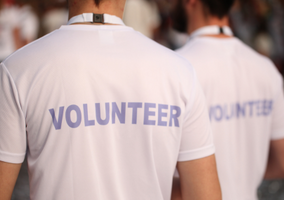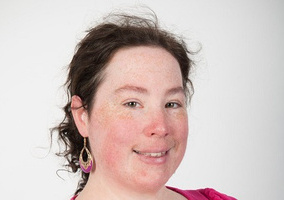For decades, I’ve navigated roles in clinical, project, change, and service management – both inside and outside the third sector – often feeling like I didn’t quite belong.
At the height of my career, I directed the national services for the UK’s largest charitable provider of equipment for disabled children. We provided grants, delivered emergency equipment, sensory play services, advocacy casework, and a nurse helpline – supporting thousands of families each year. It was work I deeply believed in, having grown up as a young carer to two disabled brothers.
But even as I achieved professionally, I struggled to make sense of myself at work. Tasks that seemed simple to others, such as responding to vague instructions or adapting to last-minute changes, often left me overwhelmed. Social expectations were a moving target. Even when I delivered projects well, I questioned whether I truly fitted in.
Everything changed after my son was diagnosed with dyslexia, ADHD, and autism. I started recognising myself in his experiences. Eventually, I sought my own assessment and was also diagnosed with autism. That diagnosis reframed a lifetime of confusion. My experiences weren’t irrational – they were understandable. Valid. Human.
The Promoting Neurodiversity report from the Association for Project Management (APM) echoed what I already knew: neurodivergent professionals bring strengths like creative problem-solving, deep focus, and strategic thinking. Yet, we face systemic barriers such as rigid hiring, chaotic environments, and unclear communication. The report made me feel less alone, and that I have a responsibility to speak up.
Organisations employ project managers to deliver organisational change, but how many also lead on developing EDI strategies that genuinely engage with – and learn from – disabled employees and stakeholders? Research from Diversity Mark shows that companies with robust EDI strategies are 120% more likely to reach their financial goals.
The emotional and financial cost of exclusion
Looking back, I see how exclusion has shaped my career. I’ve faced bullying, discrimination, and gaslighting within well-known charities.
But exclusion isn’t always overt and cruel. Sometimes it’s silent – being left out of meetings or expected to decipher unclear direction without support.
The emotional toll has been significant. I now live with post-traumatic stress disorder. Professionally, I’ve missed out on opportunities, progression, and experienced extreme burnout.
I now recognise that I masked to try and fit in – mimicking others, hiding my struggles, pretending to cope. It was exhausting, but sadly in most workplaces, necessary.
When organisations fail to support neurodivergent staff, they don’t just harm individuals – they lose talent and waste potential. They erode their own missions.
What inclusion should look like
Post-diagnosis, I began to see my strengths more clearly. My hyper-focus had helped me to create rapid-response systems that saved lives and prevented avoidable harm. My emotional insight helps me build meaningful relationships. My strategic thinking enables me to simplify complexity and design high-impact programmes.
These aren’t talents I have despite having autism – they are skills I have because of it.
APM’s report highlights seven actions for neuroinclusion – from inclusive recruitment to workplace adjustments and peer networks. I have learned that even small changes like sending agendas in advance and providing written instructions aren’t special treatment. They’re universal design principles that boost performance and protect wellbeing for all.
Today, I work for Citizens Advice Staffordshire South West as an ASD pathway financial wellbeing adviser, partnering with the Midlands Partnership Foundation Trust to support adults awaiting or have recently been diagnosed with autism or ADHD. They face the same confusing systems I once did, often while feeling dismissed or misunderstood.
Citizens Advice – the people’s champion – is more than a source of expert advice. It’s a place where staff and volunteers can represent their communities and ensure support for all. For the first time, I feel truly included. My neurodivergence isn’t hidden or seen as a barrier. It’s recognised as an asset. My insights are welcomed. My lived experience is valued.
That kind of inclusion isn’t accidental. It comes from leadership that listens, structures that flex, and cultures that trust people to show up as their whole selves. It is the difference between surviving in a role and thriving in it.
The third sector must lead by example
The third sector talks a lot about inclusion. But if our own organisations are failing to support neurodivergent staff and volunteers, we’re undermining our own missions.
We can’t fight for justice while perpetuating exclusion or reducing inclusion to a tick-box exercise.
Inclusion isn’t about optics. It’s about creating workplaces where everyone can contribute their best work because they are supported, respected, and understood.
I have gone from questioning whether I belonged to knowing that I do. That journey has shown me the true cost of neuroexclusion and the immense value of getting inclusion right.
Roughly 15–20% of the UK population identifies as neurodivergent – around 13 million people. Ask yourself: how would you want your loved ones to be treated at work? What support might you need? How would you want to feel?
Let’s treat others as we would want to be treated.
Great minds don’t think alike! It is time we stopped counting neurodivergent people out and started counting the cost of failing this community. It is a cost the third sector – and society – can no longer afford.
Related articles












